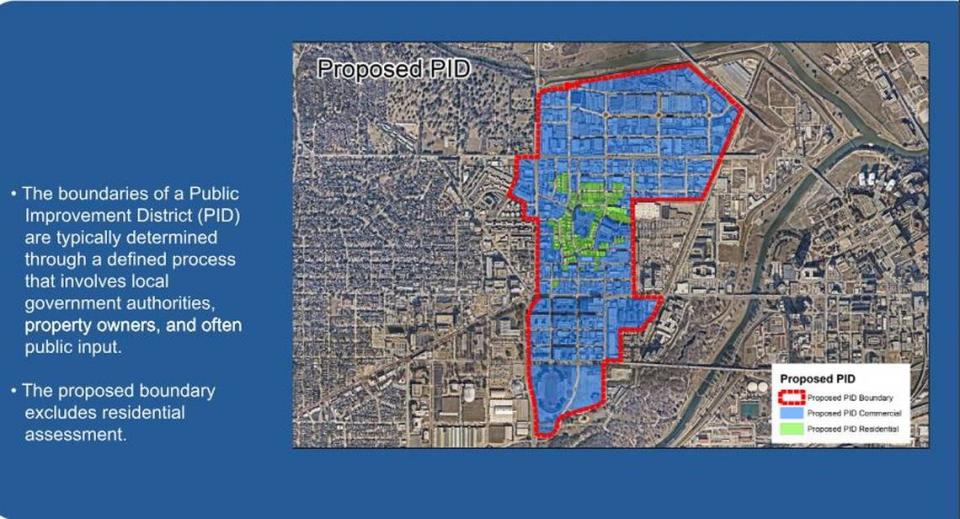Should West 7th property owners pay a tax for safety? How Fort Worth’s plan would work
Property owners in and around the West 7th entertainment district could be saddled with an extra property tax if enough of them agree to form a special taxing district.
The added tax would apply to commercial properties in the area roughly bounded by the Trinity River and Henderson Street to the north, University Drive to the west, Lancaster Avenue to the south, and the Fort Worth and Western Railroad tracks to the east.
It would not apply to the Montgomery Plaza shopping center after property owners Target and Kimco Realty opted out of the district.
In the short term, money raised from the tax would support security improvements like more street lights, police officers and an ambassador program in the areas closest to the bar district.
However, over the 20-year lifespan of the proposed taxing district, a specialized board made up of property owners would decide how the extra tax money gets spent.

Fort Worth City council member Elizabeth Beck, whose district includes West 7th, said she’s been trying to get a special taxing district for the area since she took office in 2021, speaking to a group of around 25 West 7th property owners at a community meeting Wednesday.
That effort took on new urgency in the wake of a series of high profile homicides, including the shooting of a TCU student near Bledsoe and Norwood streets in September.
However some of the property owners attending the community meeting expressed skepticism about the plan, questioning whether it would benefit the properties outside the main entertainment district.
“They created this mess. They need to fix it. They need to fix it with their own money instead of us subsidizing their problems,” said Jerry Bodiford, who owns property near the intersection of Whitmore Street and Rupert Street.
For the first couple years, property owners north of West Seventh Street won’t see much of a benefit from the proposed taxing district, Beck said.
However, the district board will ultimately decide how the money gets spent, which means in the future it could be used to address issues in the industrial area north of White Settlement Road or the commercial property around the Foundry District, Beck said.
This isn’t the first attempt to get a special taxing district for West 7th, said Marcelle LeBlanc, owner of the Velvet Box adult boutique at 2917 Morton St.
Property owners have been trying to set something like this up for at least a decade to emulate the success in areas like downtown or the Near Southside, but could never get any momentum, she said.
Downtown’s special taxing district has enabled property owners to become stronger partners with the city and have a louder voice at city hall, said Andy Taft, president of Downtown Fort Worth Inc., speaking at Wednesday night’s meeting.
Taft’s organization manages the downtown taxing district, and he noted its work and its budget are very responsive to the needs of the property owners.
The city needs half of the property owners in the proposed district to sign on before the end of May in order to get the district included in the 2025 budget.
That’s important because the city is using $315,000 from the Crime Control and Prevention District to pay for a one year contract to start an ambassador program in West 7th similar to the one downtown.
If not enough property owners sign on before the end of May, the city won’t be able to set up the district until 2026, meaning there won’t be funding to support the ambassador program after its year-long contract expires in mid-2025.


